Marissa Duckett bridges natural and social sciences
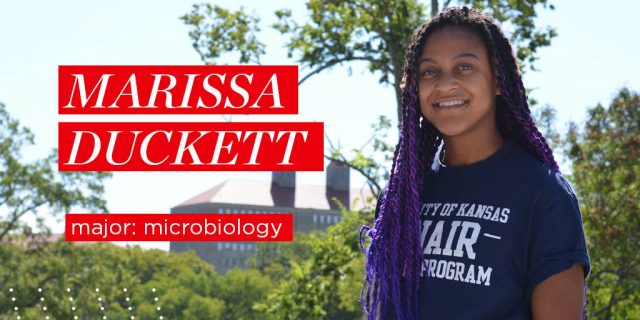
"Remember what you're here for." It's a simple reminder that can have a major impact. For KU senior Marissa Duckett, that means pushing herself daily to study the relationship between the environment and human health to better understand health disparities that exist within communities of color. To address those disparities, in her research in the Department of Molecular Biosciences, she's seeking to complicate traditional notions of health by considering not just the human body, but also environmental factors that affect the global micro biome.
Learn about Marissa's research, which bridges natural and social sciences, her public health service experiences abroad, and the KU mentors and organizations that provided a support network on her journey to becoming the scientist she is today.
What are your research interests and why did you choose them? Was there a moment when you decided this is what you wanted to study? What was that journey like?
I am interested in the environment and how human health relates to environmental conditions especially in the spread of infectious diseases. I liked infectious diseases coming into college but freshman year I took Environmental Ethics with Alex Boynton and that was when I knew I needed to tie in the environment with whatever I did. I was under the impression microbiology was anthropocentric. Last year, I found Dr. Jennifer Roberts in the Department of Geology and absolutely loved her take on microbiology and realized microbiology could be environmental; I jumped into her lab immediately. Microbiology is a broad and versatile field of study, and I've been intrigued and appropriately challenged with my coursework all three years.
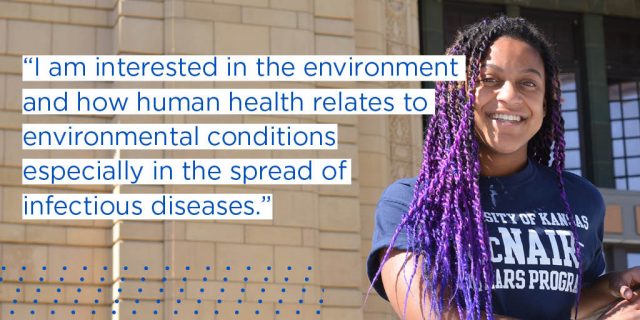
What is one thing you think everyone should know about your research project or research interests? This might be a commonly held belief that your research questions or complicates.
I think my research complicates the definition of health. Our bodies are the center of our individual health, but environmental factors affect your body and the global microbiome, so there’s way more to consider in human health than has been traditionally thought.
Give a shout-out to a professor, mentor, advisor, or someone at KU who has helped you?
It takes a village, but I’ll keep it short, otherwise I'd write a book. Lindsey Deaver, Mulu Lemma, Dr. Simone Savannah, Ed Healy, and Dr. Justin Blumenstiel among several others have helped me so much.
What is the most valuable experience you have had while studying at KU?
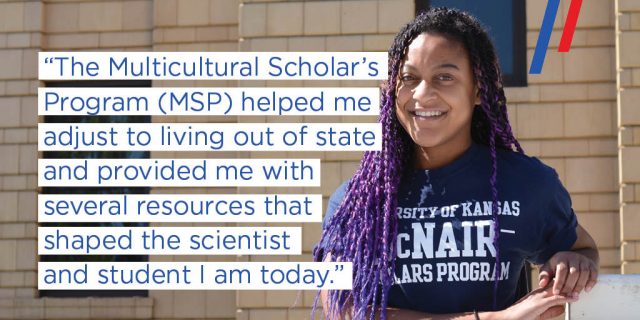
The Multicultural Scholars Program (MSP) helped me adjust to living out of state and provided me with several resources that shaped the scientist and student I am today. Without the foundation and support I got from MSP I wouldn’t have been involved with all of the organizations I’ve participated in and I probably would have transferred schools. Transferring after my first year was my original plan, but MSP made KU so lovable and resourceful that I had to stay.
What is the benefit of being in the KU College alongside students studying sciences, arts and humanities?
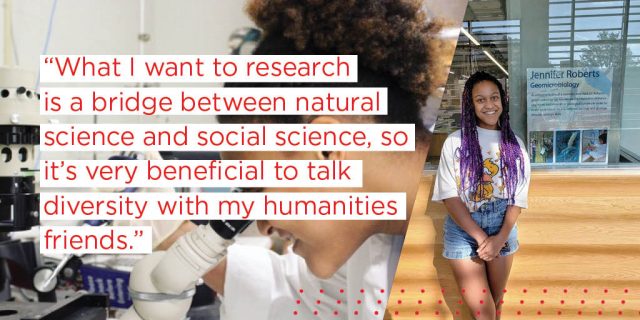
What I want to research is a bridge between natural science and social science, so it’s very beneficial to talk diversity with my humanities friends. It’s a great way to identify the needs of black, brown, and queer communities and strategize viable initiatives in those communities for both disciplines.
Have you done any internships, study abroad programs, or any other learning experiences you’d like to share?
During summer 2017, I led a Global Brigades public health service trip of 14 volunteers to Nicaragua. In summer 2018, I got to conduct epidemiological research and volunteer in underserved communities through Louisiana State University in New Orleans. And during summer 2019, I got to conduct field research with Dr. Jennifer Roberts and Bryan Rodriguez-Colón in Puerto Rico for my microbial geochemical research at KU. Over the summer, I also interned with the Harvard T.H. Chan School of Public Health in Boston studying gonorrhea.
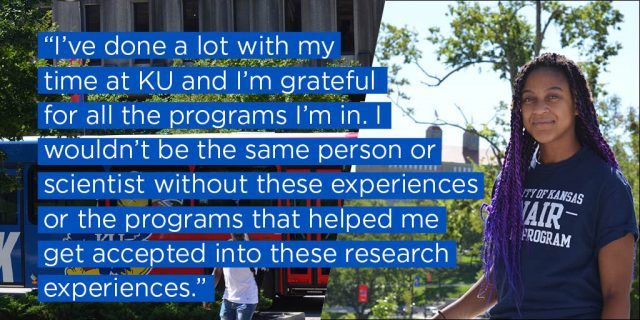
I’ve done a lot with my time at KU and I’m grateful for all the programs I'm in. I wouldn’t be the same person or scientist without these experiences or the programs (Multicultural Scholars Program, McNair, Initiative for Maximizing Student Development) that helped me get accepted into these research experiences.
What would you tell your freshman self?
Don’t let a single class determine your ability to complete your major. Also READ THE BOOK!
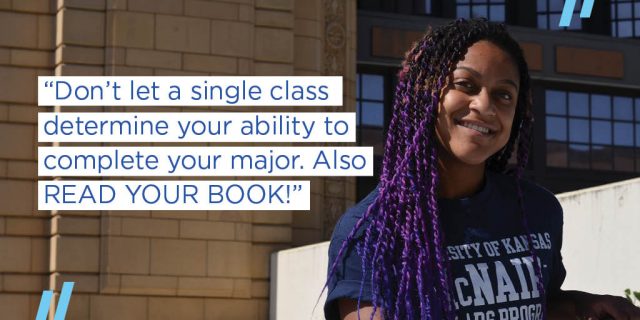
What do you plan to do after you graduate from KU?
I am currently applying to Ph.D. programs in environmental health sciences, toxicology, and public health sciences across the country. Where I'll be in a year is anyone’s guess.
What motivates you?
When I’m super stressed I tell myself “remember what you’re here for.” It’s pretty applicable for everything, but at the end of the day it is a reminder. I need to build the skills and education to put me in a place where I can alleviate heath disparities in black and brown communities.
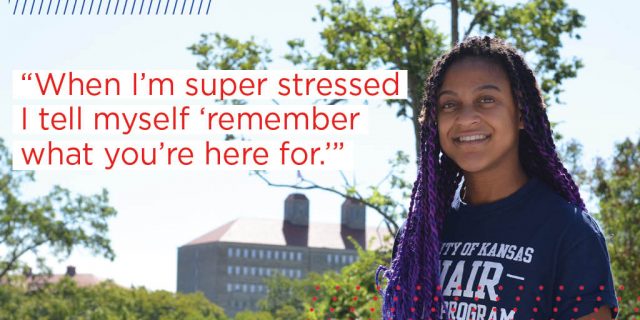
Be like Marissa. Remember what you're here for. For more information, explore the Department of Molecular Biosciences, the Center for Educational Opportunity Programs (CEOP), the Initiative for Maximizing Student Development (IMSD) program, and the Multicultural Scholars Program (MSP) at the University of Kansas.